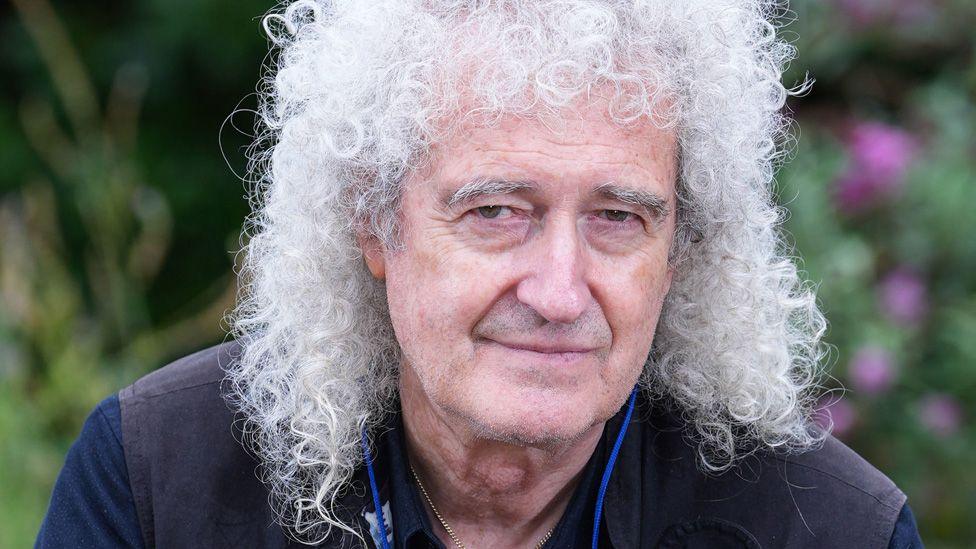Queen's Brian May quits RSPCA over its food welfare label
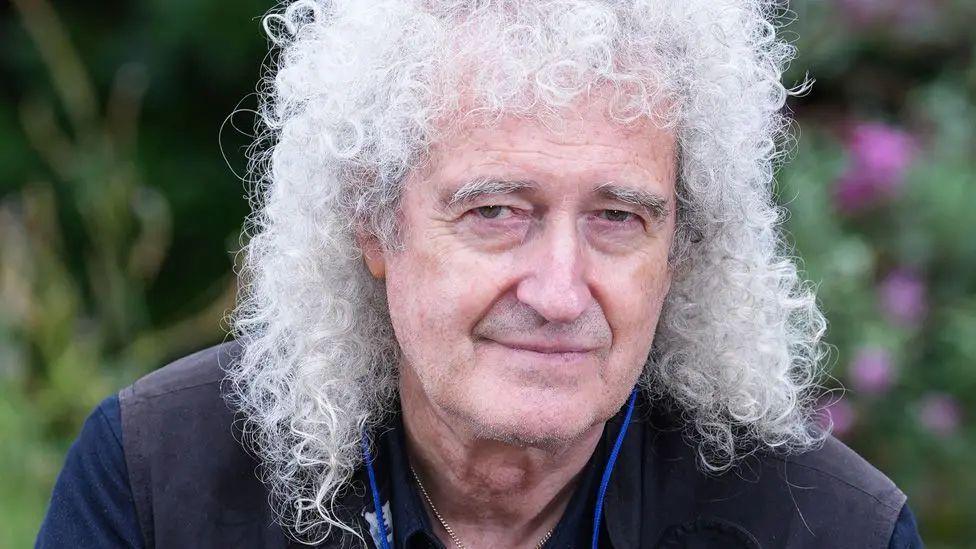
Sir Brian May has stepped down as vice-president of the RSPCA amid concerns over failings in its farm certification scheme
- Published
Queen guitarist Sir Brian May has quit as the RSPCA's vice-president over what he called “damning evidence” of animal welfare failings related to its food certification label.
BBC News reported on Thursday that the association had to run spot checks on more than 200 'RSPCA Assured' farms to ensure they met its own standards.
Animal welfare activists say their own undercover investigations found the scheme covering around 4,000 farms was failing to ensure even basic legal standards. They also want RSPCA president Chris Packham to stand down.
The RSPCA said it had "different views from Brian on how best to approach this complex challenge".
Mr Packham the environmentalist and TV presenter said he would be considering what action to take once the RSPCA had produced the findings of a wide-ranging review of the Assured scheme.
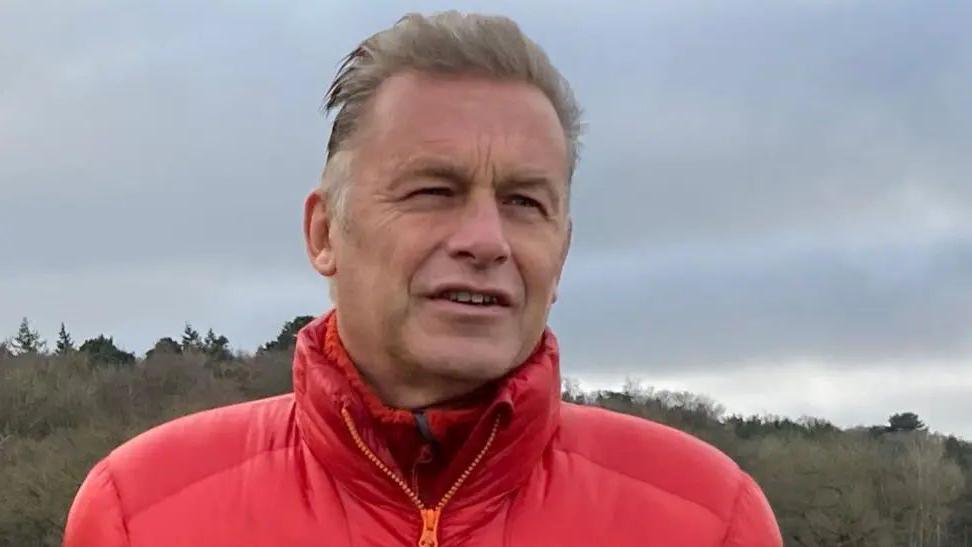
Chris Packham, the president of the RSPCA, has previously called for its Assured food labelling scheme to be suspended
Sir Brian, who has long campaigned on animal welfare issues and against the culling of badgers to protect farms from bovine TB, published his letter of resignation on Instagram, external.
In it, he said: "It is with profound sadness and not without massive soul-searching that today I have to offer my resignation as a vice-president of the RSPCA."
He said he had been kept informed "of complaints that have been levelled in recent months at the RSPCA over appallingly bad standards of animal welfare in member farms of the RSPCA Assured scheme.
"I have understood that the RSPCA needed time to evaluate the evidence and make decisions on action to be taken.
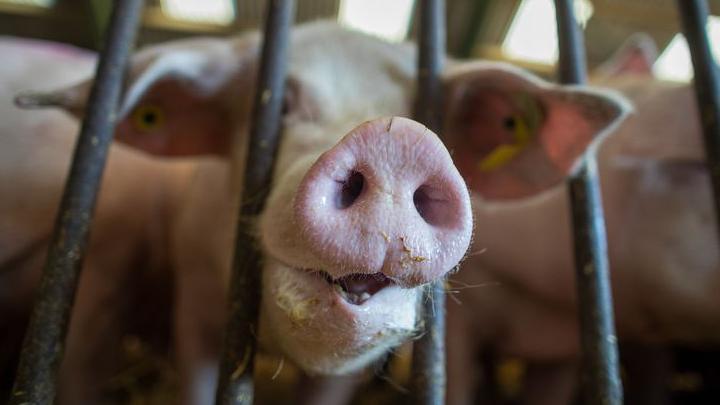
Animal welfare campaigners say their undercover investigations found failings in legal standards at around 40 farms
"But as more and more damning evidence comes to light, I find the RSPCA's response completely inadequate."
He added that as the supervision of the scheme had "failed", it needed to be dismantled.
Allegations against around 40 farms in the RSPCA Assured scheme that were investigated by animal welfare activists included overcrowding, poor hygiene and in some cases, physical abuse of livestock by farm workers.
Claire Palmer, director of Animal Justice Project, one of 60 groups that sent an open letter on Thursday calling for the scheme to be abandoned, told the BBC that they were “relieved that Brian May has made the responsible decision to step down as Vice President”.
'Robust action'
“Years of undercover investigations have revealed the systemic failures of the RSPCA Assured scheme. The RSPCA must be bold and take decisive action now," she added.
She also called on Mr Packham to step down from his role as president.
But a joint statement by Mr Packham and vice-president Caroline Lucas said the pair would take no action themselves until the results of a "full and independent review" they had demanded were published.
They said it would be "dishonourable and disingenuous" to do so until they had seen the findings.
The pair added that they "understand, sympathise with and respect" Sir Brian's decision to resign.
They also pointed to concerns at the heart of the row - whether the RSPCA should be involved with the farming of animals for food at all.
"The only way to completely stop the abuse of ‘farm’ animals is to stop farming animals", they added.
The RSPCA Assured scheme – originally known as Freedom Food – was launched 30 years ago and covers meat, fish, eggs and dairy. Certified farms have to follow strict welfare standards that are set out by RSPCA welfare scientists and are higher than is legally required in the UK.
An RSPCA spokeswoman said it respects Sir Brian’s “views and understands his decision" before adding: "His ongoing and devoted work campaigning on issues such as the badger cull and hunting have been invaluable for all animals and we look forward to speaking up on these issues with him in the future."
The spokeswoman also called farming "hard, and farmed animal welfare is even harder".
But, she added, the RSPCA wanted to "give our supporters, partners and the public confidence that RSPCA Assured is consistently delivering better welfare than standard farming practices.
"So, we launched an independent review of RSPCA Assured, which has been carried out over several months, including unannounced visits to more than 200 members of the scheme.
"Once we have analysed our findings, we will take any robust action necessary."
- Published26 September 2024
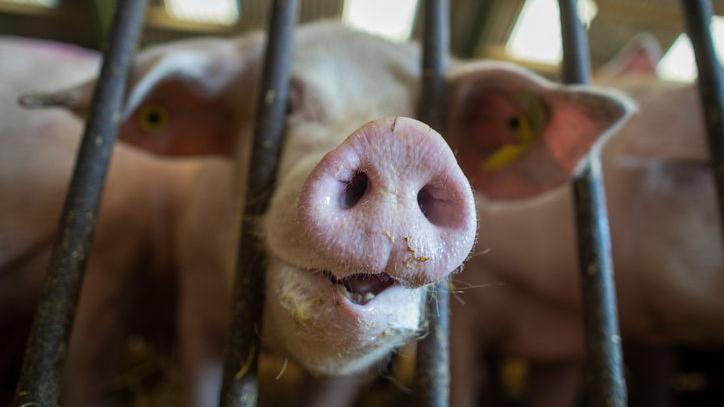
- Published4 September 2024
